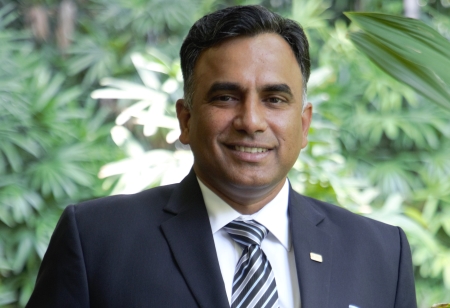
In an interaction with Industry Outlook magazine, Arjun Ranga, Managing Director at N. Ranga Rao & Sons shared his insights on the current incense manufacturing scenario, sustainable practices being implemented, and various other aspects. Arjun has been associated with N. Ranga Rao & Sons for over 23 years now and played a prime role in taking the company towards the pinnacle of success. Additionally, he is the past Chairman of CII – Karnataka State Council and the present President of the All India Agarbathi Manufacturers Association (AIAMA). Below are the excerpts from the exclusive interview:
Share your thoughts on the evolution of incense manufacturing in India in recent times.
Incense manufacturing is a very labor-intensive industry by nature; it had been a cottage industry until 2007, after which we witnessed the emergence of certain levels of minor mechanisms. With the advent of semi-automatic machines, a housewife working part-time at home who was able to make 3–4 kg of incense sticks each day is now able to produce at least 20 kg of incense sticks daily. Thus, the overall quality, efficiency, and production output of incense stick production have improved drastically in recent times. On the frontend market side too, with all the tech advancements happening in terms of the digital marketing side, the marketplace is increasingly, and a lot of incense manufacturing companies are now relying on digital marketing techniques and have ERP systems right from Tally to SAP.
How is your industry approaching sustainability and contributing to environmental conservation?
The incense manufacturing industry is highly dependent on natural materials, wherein it is a combination of bamboo, jigat powder, and wood powder mixed with charcoal that becomes the base for the manufacturing of incense sticks. Since all these are minor forest products and bamboo is such an important ingredient in the process, our industry is one of the very few that is working in close coordination with the government to ensure sustainable wild harvesting of bamboo to prevent it from encroaching on the entire forest, thus actively contributing to maintaining a balance in the ecosystem.
Additionally, we are also working with various forest departments and Farmer Produce Organizations (FPO) across a few states to come up with ways in which even other raw materials can be cultivated by farmers and enhance the livelihood of the local farmer communities. There are already numerous companies in our industry that have become zero-carbon manufacturers who are offsetting their entire carbon footprint by supporting alternative energy and doing plantations. Since incense sticks are a very high-volume, low-value product, transport and logistics are the highest contributors to carbon emissions. Thus, it is important for the companies in our industry to stay close to the source of their raw materials so they not only contribute towards sustainability but also significantly cut down on product costs.
Throw some light on how the incense manufacturing industry stays compliant with various regulations and stays on par with global standards.
Being exported to around 160 countries across the world, incense sticks are one of the most highly exported goods from India. Due to the proven mettle of Indian manufacturers in terms of their quality, there is no competition for India in this regard. We already comply with all global standards, both environmental and household. Going forward, we are also working with the Bureau of Indian Standards and the Indian government to come up with new standards specifically for Indian incense sticks, along with BIS certification, to help us foray easily into international markets.
We use cookies to ensure you get the best experience on our website. Read more...